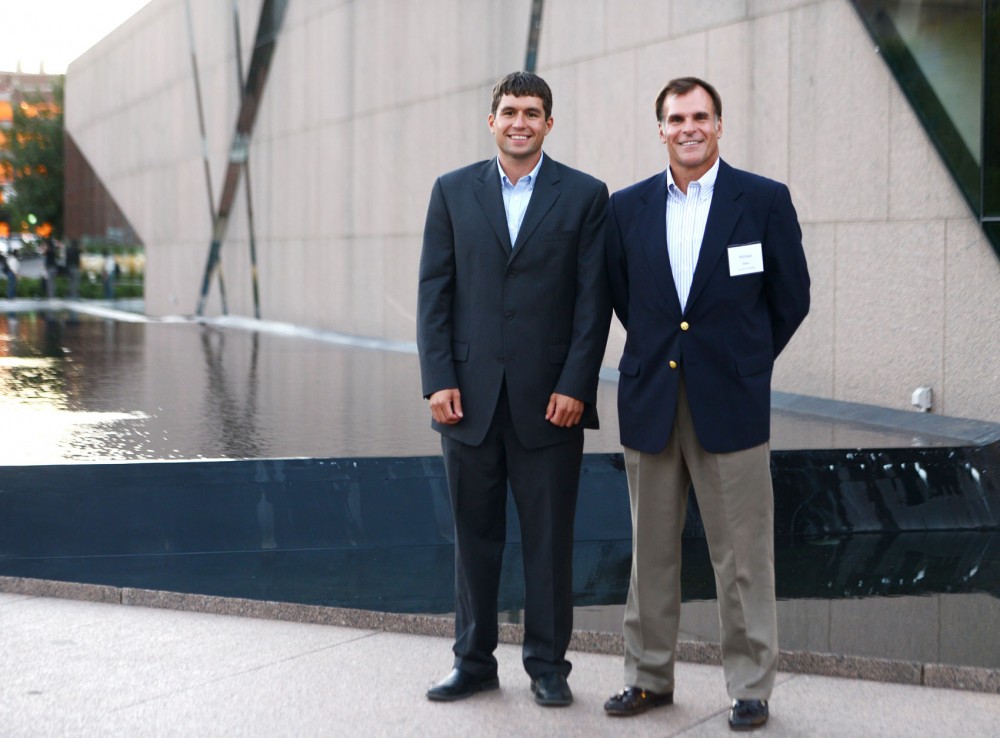The “Shedbed” — a bed that collects shedding pet hair — a blog for kids and a scheduling app were just three of a record 1,100 entries in the ninth annual Minnesota Cup.
Nearly 74 percent of this year’s semifinalists were University students, faculty or alumni. The business proposal contest also acts as a mentorship program, with a team of more than 60 entrepreneurs mentoring students and professionals.
Six finalists presented their ideas at the competition’s final award ceremony at McNamara Alumni Center on Wednesday.
Nathan Conner, a second-year MBA student at the University of Minnesota and Shedbed entrepreneur, was the $10,000 student division winner and won an additional $1,000 for being the audience’s choice.
The $40,000 grand prize was awarded to Preceptis Medical CEO Steve Anderson. The company develops innovative ear tube technology to treat ear infections.
Conner said he took on two mentors after the semifinals. One of them, lawn care company founder Michael Miller, turned into his Shedbed business partner during the competition.
“Students find mentors and business partners through the completion,” said John Stavig, professional director of Carlson’s Gary S. Holmes Center for Entrepreneurship, which helps sponsor the competition. “It’s a great way to get feedback and advice on an idea, while developing and improving as an entrepreneur.”
The student division was “extremely strong” this year, Stavig said.
Being a student in the competition with business professionals was an advantage, Conner said.
“You get to play the student card,” he said, “so other entrepreneurs are more than willing to advise you.”
While the student division has never won the $40,000 grand prize, University students have managed to nab the $10,000 student division prize for six of the past eight years.
Scott Litman, co-founder of MN Cup, said successful business ideas get to the market quickly and require only a small amount of capital to get started.
“A good business plan tells a story,” Litman said. “It tells you about why the world needs a product or service and helps you understand the unmet need.”
Stavig said MN Cup organizers try to make the entry process accessible to anyone, so students can get the chance to network with experienced entrepreneurs.
“It’s a logical step to connect to the business community,” he said.
For budding business students considering entering MN Cup 2014, Litman advised researching the market, building the right team and finding effective distribution channels.
“Find ways to move your idea forward,” he said. “Set goals for 90 days out and hit them. The key is progress; learn from the successes and mistakes that are a part of that
journey.”








